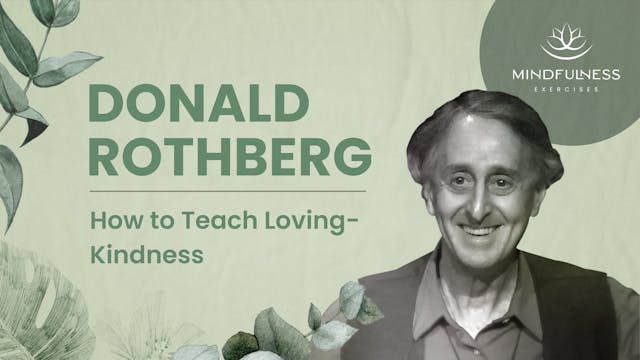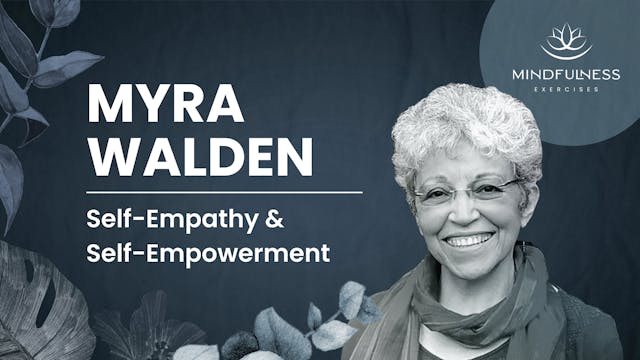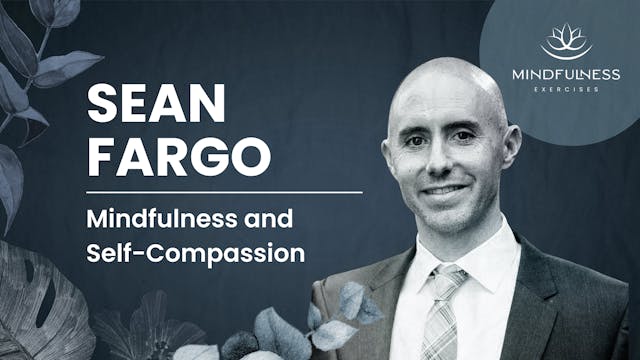Navigating Shame with Self-Compassion - Christopher Germer
Feel More Love, Forgiveness, Gratitude & Joy
•
2h 2m
Chris first learned mindfulness meditation at a hermitage in Sri Lanka in 1977. His interest in mindfulness was rekindled in 1985 when he joined a study group in Cambridge that became the Institute for Meditation and Psychotherapy. Decades of conversations came together in 2005 with the publishing of a co-edited, professional text, Mindfulness and Psychotherapy (now in its 2nd edition), and Wisdom and Compassion in Psychotherapy (2012). Mindfulness is the heart of Buddhist psychology, and interest in mindfulness-, acceptance-, and compassion-based psychotherapy has recently blossomed to become a mainstream approach to psychotherapy.
Chris’ primary interest is self-compassion—the warmhearted attitude of mindfulness when we suffer, fail, or feel inadequate. He stumbled onto self-compassion in 2005 as a solution to his decades-long struggle with public speaking anxiety.
In 2015, Chris helped to establish the Center for Mindfulness and Compassion at the Cambridge Health Alliance. He is on the faculty and serves as a senior advisor and research consultant, currently co-developing an fMRI research protocol for treating chronic pain with self-compassion.
Chris spends his professional life traveling internationally, teaching and writing about mindfulness and self-compassion, supporting MSC teachers and students, and maintaining a modest psychotherapy practice.
Learn more about Dr. Chris Gemer: https://chrisgermer.com/
Learn about the Center for Mindful Self-Compassion: https://centerformsc.org/
00:00:14 – Sean Fargo welcomes Chris Germer
00:06:34 – Chris Germer opens the session
00:09:05 – Shame: the most difficult human emotion
00:10:59 – Outline of the session
00:12:59 – A doorway to self-compassion
00:16:44 – Shame is mostly invisible
00:18:52 – The three healing paradoxes of shame
00:20:55 – Shame is learned
00:24:38 – Shame is not a problem; avoiding shame is the issue
00:25:33 – Three components of working with shame
00:31:01 – Resistance to self-compassion
00:33:34 – Exercise: Repeated questions
00:38:24 – Central paradox of self-compassion for shame
00:39:16 – Zones of tolerance
00:42:37 – What is shame?
00:50:40 – Research on shame
00:58:45 – Reflection: Shame and identity
01:04:57 – Self-compassion is the opposite of shame
01:09:46 – Diving deeper into the three healing paradoxes of shame
01:11:07 – The universal wish to be loved
01:20:11 – Exercise: Self-compassion break for shame
01:38:20 – Reflections on the practice
01:47:20 – Question: How does religious-based shame relate to other sources of shame?
01:52:59 – Question: As a teacher, how do you navigate meditations on shame when strong emotions are stirred?
01:57:02 – Question: What do you mean in saying that sometimes not practicing self-compassion is most compassionate?
Up Next in Feel More Love, Forgiveness, Gratitude & Joy
-
How to Teach Loving-Kindness - Donald...
Donald Rothberg is a leading teacher and writer on meditation, the intersection of psychology and spirituality, and socially engaged spiritual practice. He has taught and practiced Buddhist meditation for over 45 years, and his teaching and trainings have helped to pioneer new ways of connecting ...
-
Self-Empathy & Self-Empowerment - Myr...
Originally from Mexico, Myra Walden holds a bachelor’s degree in psychology from the University of Illinois at Chicago and a master’s degree in clinical psychology from the Illinois School of Professional Psychology. She has practiced psychotherapy since 1991 and has offered workshops for mental ...
-
Mindfulness and Self-Compassion - Sea...
After deeply immersing himself in mindfulness practice as a Buddhist monk in Thailand, Sean Fargo noticed a shift in the way he related to himself and others that he wanted to bring to the communities around him. Since then, he has spent the last 10 years focused on building out mindfulness pract...



